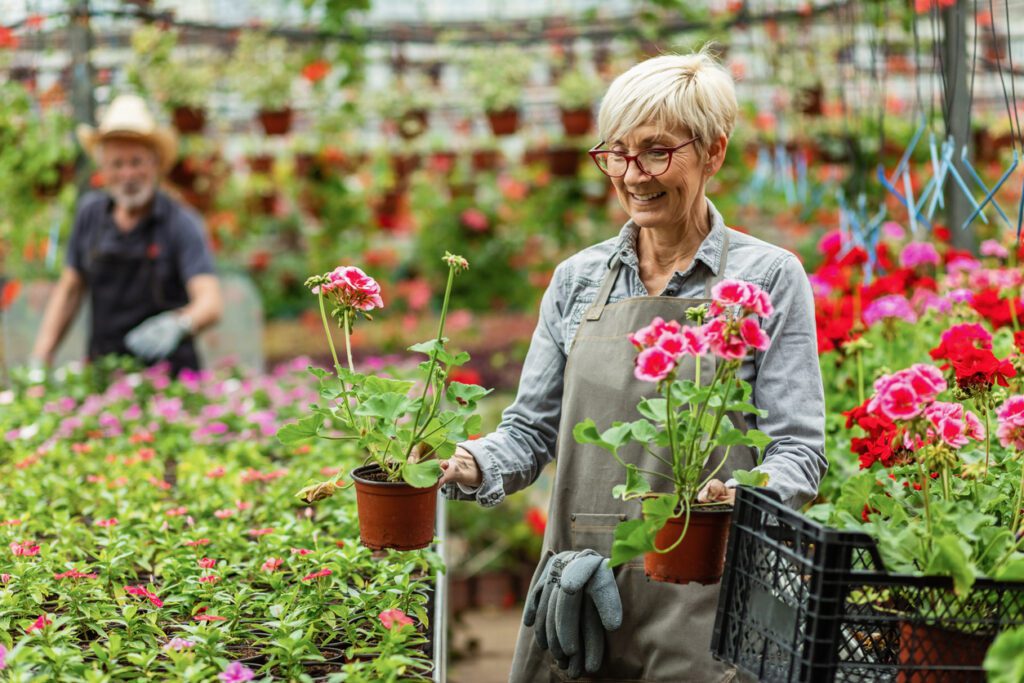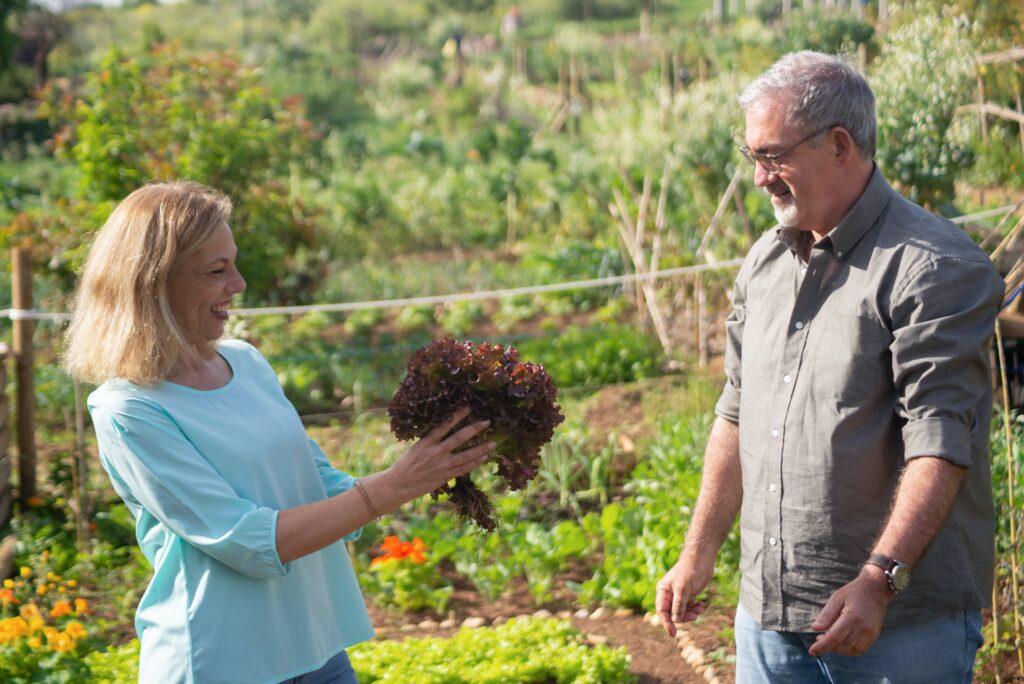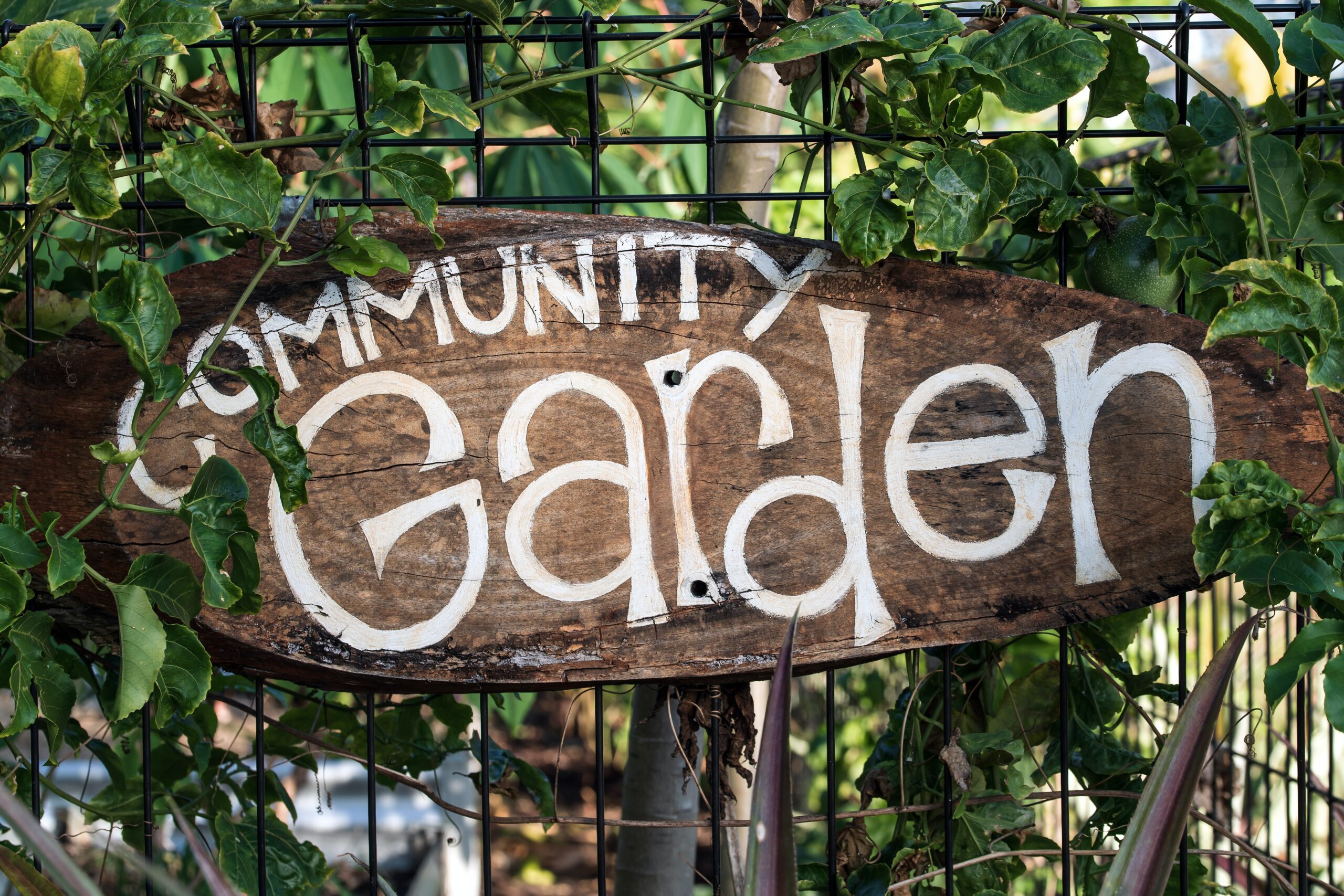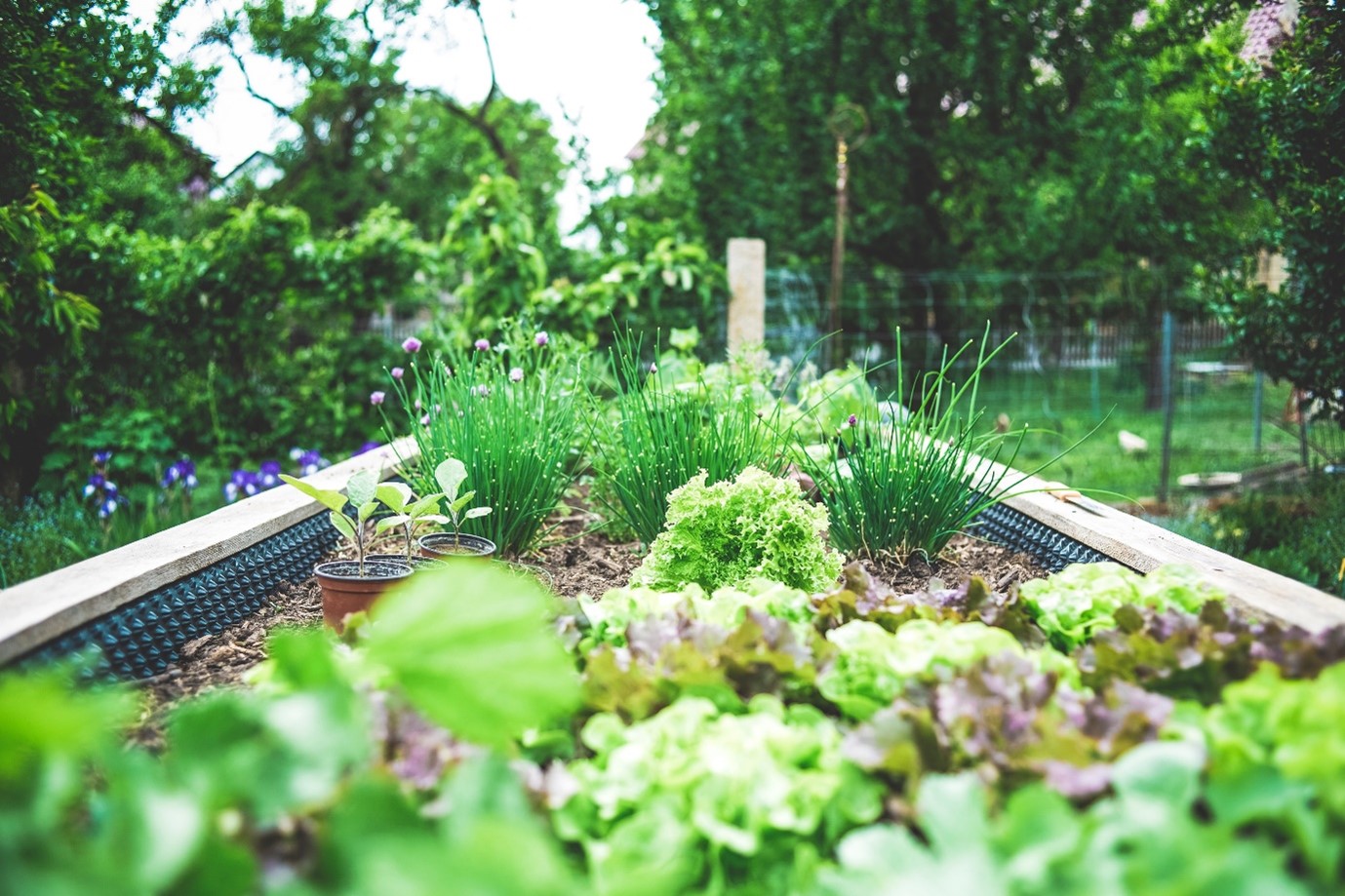Cultivating Connections: The therapeutic power of gardening for people with dementia
Gardening has long been celebrated for its physical and mental health benefits. From providing fresh, homegrown produce to fostering a sense of accomplishment, the act of cultivating a garden can be a deeply rewarding experience. In recent years, the significance of gardening has extended beyond personal well-being, with community gardens playing a pivotal role in fostering a sense of community and support. Moreover, the therapeutic benefits of gardening have proven to be particularly beneficial for individuals facing cognitive challenges, such as those with dementia.
The Therapeutic Power of Gardening

1. Emotional Well-being
Gardening provides an escape from the demands of daily life, having a calming effect on the mind, reducing stress and anxiety. The sensory experience of handling soil, smelling flowers, and hearing the rustle of leaves can evoke positive emotions and enhance overall well-being. For individuals with dementia, this emotional connection to nature is especially valuable.
2. Physical Exercise
Engaging in gardening activities promotes physical well-being. From digging and planting to watering and harvesting, gardening provides a low-impact form of exercise that can enhance mobility, flexibility, strength, and cardiovascular fitness. For those with dementia, maintaining physical health is crucial for overall well-being.
3. Cognitive Stimulation
Gardening is a multi-sensory experience that stimulates various cognitive functions. Planning a garden, recognizing different plant species, and executing gardening tasks can help maintain cognitive skills such as memory and problem solving. This cognitive engagement fosters a sense of purpose and accomplishment.

Gardening and Dementia
1. Promoting Independence
Gardening allows individuals with dementia to participate in meaningful activities that promote a sense of purpose and independence. Simple tasks, such as watering plants or harvesting vegetables, empower them to contribute actively to the community garden.
2. Creating a Sense of Routine
Establishing a gardening routine provides structure and familiarity, which is crucial for individuals with dementia. The cyclical nature of gardening, from planting seeds to harvesting, creates a predictable and comforting rhythm that can help reduce feelings of disorientation.
3. Strengthening Social Bonds

Community gardens create a supportive environment where individuals with dementia can connect with others who share a common interest. Shared experiences, such as tending to plants or celebrating the harvest, foster a sense of community and combat feelings of isolation.
4. Improved Mood and Emotional Well-being
The sensory stimulation and connection with nature in gardening contribute to improved mood and emotional well-being. Studies have shown that exposure to nature can alleviate symptoms of depression and anxiety in individuals with dementia.
5. Enhanced Quality of Life
Gardening has been linked to an enhanced quality of life for individuals with dementia. The combination of physical activity, social interaction, and cognitive stimulation creates a holistic therapeutic environment that goes beyond traditional forms of therapy.
Community Gardens: Growing Together

These collaborative ventures not only contribute to environmental sustainability but also create a sense of belonging among community members. Gardening in a communal setting fosters social interaction, knowledge exchange, and a shared responsibility for the well-being of the garden.
1. Social Interaction
Community gardens foster a sense of belonging and community. Gardening becomes a shared experience, bringing people together to exchange knowledge, stories, and companionship. For individuals with dementia, this social interaction is invaluable, combating the isolation that people with dementia often experience.
2. Education and Skill Development
Community gardens provide a platform for learning and skill development. Novice gardeners can gain insights from experienced members, and the exchange of knowledge becomes a continuous cycle. Learning new skills enhances cognitive function and instils a sense of achievement.
3. Access to Fresh Produce
Community gardens often yield a bounty of fresh, locally grown produce. Access to nutritious food is vital for everyone, but it holds particular significance for those with dementia. Nutrient-rich fruits and vegetables contribute to overall health and can positively impact cognitive function.

Conclusion
When engaging the person with dementia in gardening it is important to consider the accessibility of the gardens. Ensure that the garden is designed with accessibility in mind, including raised beds, wide pathways, and clear signage. This enables individuals with mobility challenges or cognitive impairments to navigate the space comfortably.
Gardening, especially within the context of community gardens, emerges as a powerful tool for promoting physical, mental, and emotional well-being. The positive impact extends to individuals with dementia, providing them with the opportunity for social connection, and a tangible sense of accomplishment. As we cultivate gardens, we simultaneously nurture a sense of community, fostering growth in both plants and people. The evidence supporting the benefits of gardening for dementia is compelling, emphasizing the need to integrate horticultural therapy into holistic care approaches for those living with cognitive challenges.
References
- Alzheimer’s Society. (2018). Gardening and Dementia: A Guide for Carers.
- Gonzalez, M. T., & Kirkevold, M. (2014). Benefits of sensory garden and horticultural activities in dementia care: A modified scoping review. Journal of Clinical Nursing, 23(19-20), 2698-2715.
- Soga, M., Gaston, K. J., & Yamaura, Y. (2017). Gardening is beneficial for health: A meta-analysis. Preventive Medicine Reports, 5, 92-99.
- Detweiler, M. B., et al. (2012). What is the evidence to support the use of therapeutic gardens for the elderly? Psychiatry Investigation, 9(2), 100-110.







